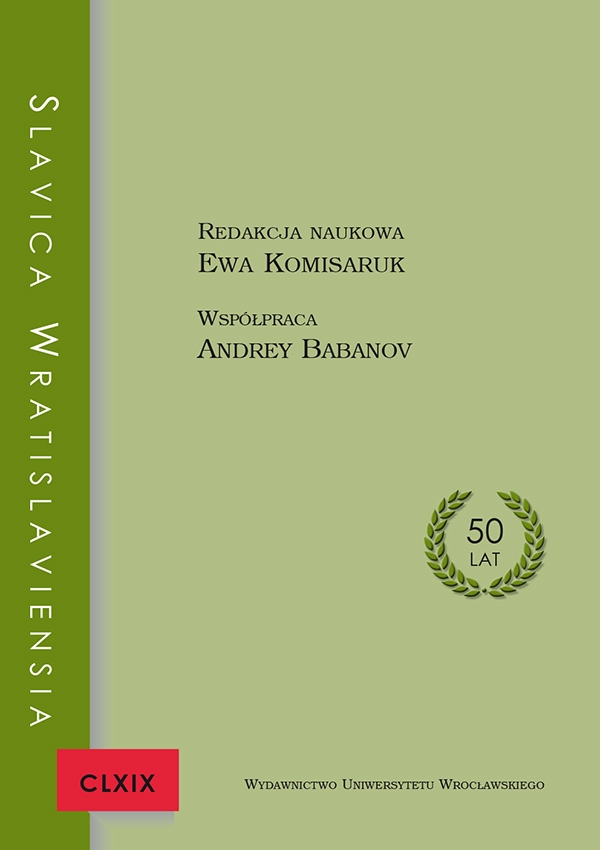

Artykuły

“The Empire at the end of the decadent days…” Nicky, Alix, Grigori, and others in journal entries, letters, telegrams, memoirs: Parts I and II
The first part of the essay is an attempt to identify the primary motivating factors for the February Revolution and, consequently, the Bolshevik coup and the abdication and execution of the last Romanov ruler. In this part, I have discussed a handful of the most often advanced hypotheses of various credibility — from those formulated by historians, historians of ideas, sociologists, and political scientists protracted warfare, rising dissatisfaction of Petrograd “line standers”, incompetence of the political elites, continuing desacralization of the ruler figure, a process set in motion during the reign of Tsar Alexander II, up to those widely considered irrational, shrouded in mysticism or conspiracy-minded the curse of the Ides of March, the unearthing of Lermontov’s prophecy, Rasputin’s last will and testament, and the machinations of “The Grand Orient of Russia’s Peoples” masonic lodge. My attention, however, has been focused primarily on the egodocuments important for the understanding of the empire’s decline and erosion — the journals and correspondence of Nicholas II and Alexandra Feodorovna.
The second part of the essay focuses primarily on the appearance or its lack of the February and October events in the journals of Russian writers including Bunin, Gippius, Ivnev, Korolenko, Kuzmin, Blok, Chukovsky, Merezhkovsky. All of them rather than only those that suffered the regime’s repressions shared a lack of compassion or empathy for the overthrown monarch, a dislike sometimes turning into outright hatred and hostility of the Bolsheviks, and a proclivity for mourning pre-Revolutionary Russia, a feeling of having witnessed the collapse of a prior, better world. The new definitely not brave — built by peasants clad in military garb, “the pale, tall Barbarians”, and mobs running rampant through post-October streets of Moscow and Petrograd — had a gloomy, hostile face of the “boor”, the “troglodyte”, who had nothing in common with the bucolic, paper characters of Turgenev or Tolstoy, and rather resembled clones of the inhabitants of Bunin’s apocalyptic The Village.
In the conclusion, I have discussed the possible reasons behind Vladimir Putin’s decision to abandon the idea of official state celebrations of the centenary of the events of February and October of 1917.
„Pимский мир периода упадка…” Ники, Аликс, Григорий и другие в дневниках, письмах, телеграммах, воспоминаниях
Первая часть эссе представляет собой попытку назвать главные причины Февральской революции и охарактеризовать некоторые ее последствия: большевистский переворот, отречение от престола и казнь последнего императора из династии Романовых. Я привел несколько чаще других выдвигаемых по этому поводу гипотез с разным уровнем достоверности — начиная с тех сформулированных в публикациях историков, историков идей, социологов, политологов продолжающаяся война, нарастающее недовольство „людей из очередей” в Петрограде, некомпетентность политической элиты, усиливающийся с времен царствования Александра II процесс десакрализации монарха, а заканчивая иррациональными, окутанными мистикой, иногда остающимися в кругу теорий заговора зловещее проклятие мартовских ид, вышедшее из забвения Предсказание Лермонтова, завещание Распутина, козни масонской ложи „Великий Восток Народов России”. Однако свое внимание я сосредоточил прежде всего на эгодокументах необходимых для лучшего понимания процесса эрозии империи — дневниках и переписке Николая II и его супруги Александры Федоровны.
Во второй части я писал в основном о при/от/сутствии февральских и октябрьских событий в дневниках русских писателей в том числе Бунина, Гиппиус, Ивнева, Королен
ко, Кузмина, Блока, Чуковского, Мережковского. Объединило их отсутствие сострадания, эмпатии для свергнутого с престола царя не только у репрессированных режимом, негативное иногда переходящее в ненависть, враждебность отношение к большевикам и всеобщее оплакивание дореволюционной России, чувство потери старого мира. У нового но не дивного — создаваемого крестьянами в военной форме, „варваров роями”, „чернью” на послеоктябрьских улицах Петрограда и Москвы — было угрюмое, недружелюбное лицо „хамов”, „пещерных людей”, которые не имели ничего общего с идиллическими, бумажными персонажами вымышленными Тургеневым или Толстым, а, скорее, были клонами героев, населяющих апокалиптическую Деревню Бунина.
Наконец, я упомянул о причинах, по которым Владимир Путин отказался от торжественного празднования сотой годовщины Февраля и Октября.